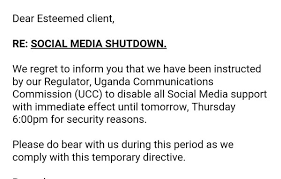 It seems that the debate around the decision taken by WhatsApp owners to provide their service of end-to-end encryption has not yet come to an end. The last statement on the matter was given by James Comey, FBI Director. This week Comey, during the “National Security Telecommunications Advisory Committee“, made it clear why he is against the use of encrypted messaging adopted by services like WhatsApp.
It seems that the debate around the decision taken by WhatsApp owners to provide their service of end-to-end encryption has not yet come to an end. The last statement on the matter was given by James Comey, FBI Director. This week Comey, during the “National Security Telecommunications Advisory Committee“, made it clear why he is against the use of encrypted messaging adopted by services like WhatsApp.
Comey stated that “WhatsApp has over a billion customers, overwhelmingly good people, but in that billion customers are terrorists and criminals, so that now-ubiquitous feature of all WhatsApp products will affect both sides of the house,”. Obviously this statement generated further and strong reactions on the web, where the general opinion is that for each service such WhatsApp or Telegram the FBI shuts down, there will be another messaging service to replace them.
It is no mystery that the relationship between the Facebook-owned app and governments is often difficult, we have already talked about this subject on this blog, and what happened this week further confirm this fact. On occasion of Ugandan president Yoweri Museveni re-election for the fifth term and swearing cerimony, there has been for the second time in three months a total social media blackout. According to journalists and digital watchdog nonprofits in the country, starting from 11th May until the 12th, internet service providers were ordered to block access to Twitter, Facebook and WhatsApp.
 Jeff Wokulira Ssebaggala, chief executive of Unwanted Witness, a Ugandan nonprofit that advocates for freedom of speech, said that “The government knows that Museveni was not rightly elected by the majority of citizens… thus, it fears that citizens might organize online and cause an upraising [like] the Arab-spring,” .
Jeff Wokulira Ssebaggala, chief executive of Unwanted Witness, a Ugandan nonprofit that advocates for freedom of speech, said that “The government knows that Museveni was not rightly elected by the majority of citizens… thus, it fears that citizens might organize online and cause an upraising [like] the Arab-spring,” .
Ugandan government’s restrictive attempts to manage the media, simply confirm the importance and the unstoppable power that messaging applications such as WhatsApp now have in every field of our everyday life.
